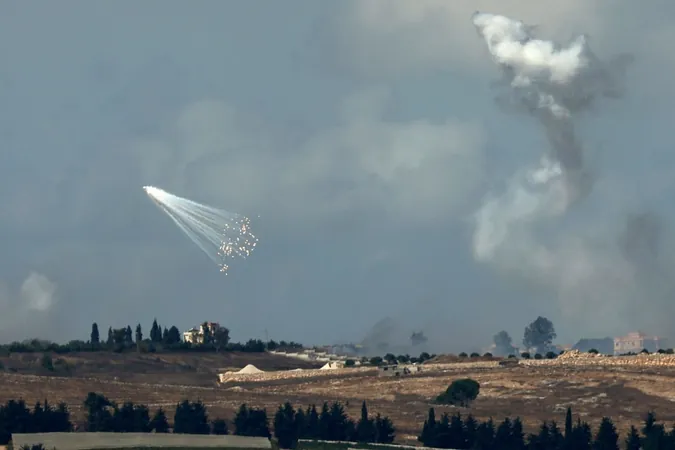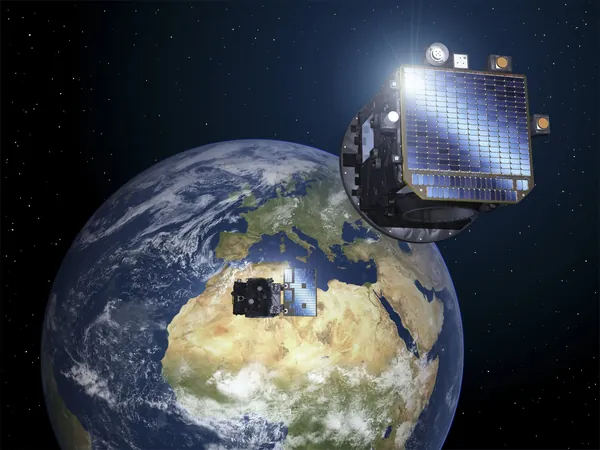
Escalation of Violence: Israel and Hezbollah Clash Amid Regional Tensions
2024-10-02
Fighting Erupts in Southern Lebanon
BEIRUT – On October 2, fighting erupted between Israeli troops and Hezbollah fighters in southern Lebanon, marking a significant escalation in regional hostilities. This confrontation followed a missile attack launched by Iran against Israel, which Prime Minister Benjamin Netanyahu vowed to respond to with military force.
Details of the Clashes
The Israeli military reported “close-range encounters” with Hezbollah across multiple locations in southern Lebanon, particularly in towns close to the border, including Maroun al-Ras and Adaisseh. Hezbollah claimed to have engaged Israeli units that had allegedly infiltrated 2 kilometers into Lebanese territory, while the Lebanese army confirmed the incursion, stating that Israeli forces breached the UN-patrolled Blue Line by approximately 400 meters and withdrew shortly after.
Casualties and Continued Conflict
In the aftermath of these clashes, Israel announced casualties, reporting the loss of eight soldiers, with the first death occurring on the same day. Hezbollah's spokesman Mohammad Afif proclaimed that these confrontations mark the “first round of war,” asserting that Hezbollah is fully prepared for continued resistance.
Israeli Military Response
As the situation developed, Israel intensified its military operations, deploying both infantry and armored units in southern Lebanon. The military stated that its focus remains on disrupting tunnels and other border infrastructure, although the airstrikes have expanded to Beirut’s southern suburbs, a Hezbollah stronghold. Witnesses reported significant damage and rising smoke plumes from the recent bombardments, as the area lay largely deserted due to previous strikes.
Iran's Involvement
Further complicating matters, Iran issued a statement regarding the missile attack on Israel—the most substantial military action against the country to date. Iran suggested that their campaign would cease unless further provocations were encountered. Nonetheless, both Israel and the United States are reportedly preparing for a significant counter-strike, potentially targeting Iranian oil facilities and military assets.
International Reactions
Global leaders have responded with calls for de-escalation. UN Secretary-General Antonio Guterres expressed deep concern over the “sickening cycle of escalation” in the Middle East, urging all involved parties to halt violence. In response to Guterres' comments, Israeli Foreign Minister Israel Katz declared him persona non grata in Israel, criticizing him for not condemning Iran's missile attack explicitly.
Evacuations Initiated
Amid these rising tensions, nations worldwide are initiating evacuation plans for their citizens in the region. South Korea has dispatched military aircraft for evacuations, while Spain is preparing to send two planes to assist its nationals in Lebanon. Germany has already removed non-essential staff and is urging its citizens in Iran to leave. Canada has also arranged for the evacuation of its citizens.
Impact on Air Travel
The turbulence is not limited to the Middle East; it has also impacted air travel globally, leading to cancellations and delays for flights to and from Israel and Lebanon. Various airlines have suspended operations in the region, with a return not anticipated until at least mid-October, pending the security situation.
Incidents in Europe
Adding to the unrest, incidents in Europe illustrate the wide-reaching effects of the conflict. In Denmark, three Swedish nationals were detained following blasts near the Israeli embassy in Copenhagen, and the Israeli embassy in Stockholm was targeted in a shooting incident. German officials condemned celebrations of violence against Israel in Berlin, emphasizing that acts glorifying organizations like Hamas and Hezbollah would not be tolerated.
Concerns for Regional Stability
As the situation continues to unfold, the potential for conflict to spread remains a significant concern for regional and global stability.




 Brasil (PT)
Brasil (PT)
 Canada (EN)
Canada (EN)
 Chile (ES)
Chile (ES)
 España (ES)
España (ES)
 France (FR)
France (FR)
 Hong Kong (EN)
Hong Kong (EN)
 Italia (IT)
Italia (IT)
 日本 (JA)
日本 (JA)
 Magyarország (HU)
Magyarország (HU)
 Norge (NO)
Norge (NO)
 Polska (PL)
Polska (PL)
 Schweiz (DE)
Schweiz (DE)
 Singapore (EN)
Singapore (EN)
 Sverige (SV)
Sverige (SV)
 Suomi (FI)
Suomi (FI)
 Türkiye (TR)
Türkiye (TR)